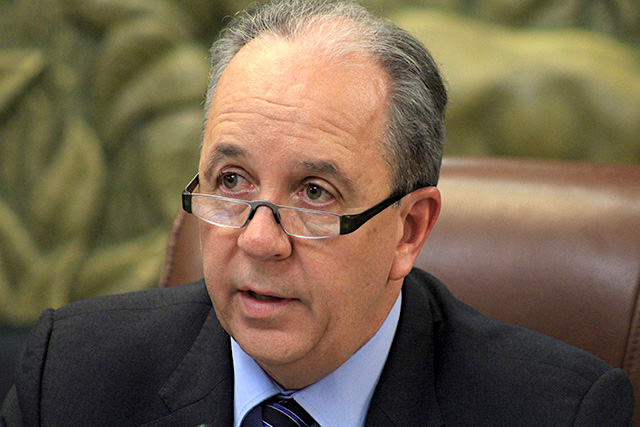
Public Enterprises minister Leone Jooste said there is a perception that the decision to list MTC was taken simply because the government needed to raise money.
Jooste said this perception is incorrect, and the objectives that were agreed upon represent the true reasons for this decision that was taken more than three years ago already as part of the ongoing public enterprises’ reforms.
“Our objective for MTC’s listing was to develop Namibia’s financial sector as it is critical for economic development. Currently, a significant amount of savings leaves the country for investment outlets in other countries,” Jooste said.
The minister said this in Windhoek on Friday when he officiated at the MTC ringing of the bell ceremony as part of the company’s listing on the Namibia Stock Exchange.
The mobile network opened its initial public offer (IPO) on 20 September 2021 and closed on 1 November 2021.
From its 49 per cent in MTC, the government wanted to raiseN$3,1 billion from members of the general public in terms of a public offer.
Instead, the government managed to get N$2,541 billion (value of applications) from their disinvestment in MTC.
Jooste said MTC was set up to provide mobile communication services as an enabling tool for economic transformation.
He further said when MTC was formed, no private-sector operator was willing to venture into the mobile network sector because of risks created by the economies of scale.
“This is a typical example of the role of public enterprises in developing economies where the private sector is not able or willing to provide required products and services, and the State, through Public Enterprises, have to intervene to address market failures,” Jooste said.
In addition, to offer mobile communication services, Jooste said MTC’s responsibility was to ensure that public enterprises play a catalytic role in jump-starting economic growth across the various economic sectors.
He said MTC’s listing would unlock maximum shareholder value and consequently liquidity for the fiscus, whereby both institutional and retail investors participation was encouraged by creating investment opportunities by the State in the Namibian economy.
According to Jooste, the listing demonstrates the government’s commitment to public enterprise reforms and aims to create a new mindset as a listed company adhering to international best corporate governance practices.
“The last objective was to broaden economic participation through ownership by ordinary Namibians in a profitable public entity,” he said.
Although the shares were not all taken up, Jooste said the N$2.541 billion raised despite the current depressed economy is by far the largest IPO in the history of Namibia and more than three times larger than the previous IPO.
THE IPO
Despite the offering not being fully subscribed, all 5 611 applications that wanted 299,05 million MTC shares were successfully and fully allocated.
This is under subscription of shares, as the government offered 367,5 million existing ordinary MTC shares to the public.
As a result, the government managed to get N$2,541 billion (value of applications) from their disinvestment in MTC.
Initially, the State was targeting to get N$3,1 billion from members of the general public in terms of a public offer.
Retail applicants (individuals) submitted 5,535 applications worth N$137,2 million, and all were fully allocated.
If every application represents a person, this indicates that 5 535 individuals are the new shareholders in MTC and expect dividends twice a year- depending on the performance of the mobile company, if all applicants bought the shares to hold.
In terms of institutional investors, 76 applications were received requesting ordinary ownership in the mobile company in exchange for N$2,4 billion.









Comments